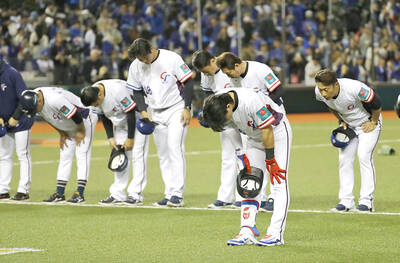On the sandy wastes of the troubled Middle East, in gangland Los Angeles or in the sun-kissed Caribbean, cricket is breaking down barriers and also creating controversial alliances.
While the Ashes battle between England and Australia dominates the attention of the game’s devotees, cricket is playing the role of peace-maker in some of the world’s most testing areas.
The Cricket For Change group, which was created 30 years ago, recently took its “street cricket” from inner-city London to the Israeli desert where Bedouin and Jewish children played the game together in the town of Beersheva.
“Here we have a chance with the young kids: they’ve not yet been brainwashed into separation, and there’s no need for it. That might sound naive. But there isn’t any need,” Tom Rodwell, the head of Cricket for Change, said.
There appeared to be some hope.
Eleven-year-old Abdullah played with Jewish children for the first time in his life.
“I felt really good, because I felt I was playing with good people,” he said.
On the other side of the world, the Compton Cricket Club (CCC) tries to divert teenagers way from the bloody gang battles which are a daily routine in one of Los Angeles’ toughest neighborhoods.
The CCC was set-up in 1995 with definite goals.
“The aim of playing cricket is to teach people how to respect themselves and respect authority so they stop killing each other,” said president Ted Hayes, who was introduced to the game in Beverley Hills by Katy Haber, a British-born film producer.
The club have even sang the praises of the sport in a rap song, Bullets.
“From bullets to balls. From the streets of concrete to the grass and mats. We’re playing cricket,” is one line in the song which was recently voted one of the top cricket tunes of all time by the Guardian newspaper.
Meanwhile, New York police are using cricket to build stronger links with Asian expatriates living in the city.
A Twenty20 tournament has been introduced with 10 teams and 170 players involved this summer.
Deputy Inspector Amin Kosseim of the NYPD’s Community Affairs Bureau, said: “The Muslim community is not a community we had great outreach to in the past.”
Cricket is also taking on diplomatic power particularly in the Caribbean where China and Taiwan have been locked in a multimillion dollar game of intrigue with key, political alliances at stake.
For the 2007 World Cup, China financed stadia in Antigua, Grenada and Jamaica while Taiwan backed the venues at St Vincent and St Kitts.
On Sunday, Windsor Park in Dominica, upgraded at a cost of US$17 million, became cricket’s latest international venue when the West Indies played Bangladesh.
The ground, which was leveled out of a rubbish dump, accommodates state-of-the-art facilities and was a gift from Beijing at the establishment of diplomatic ties between the two nations.

Taiwan kept their hopes of advancing to next year’s World Baseball Classic (WBC) alive with a 9-1 victory over South Africa in a qualifier at the Taipei Dome on Saturday, backed by solid pitching. Taiwan last night played against Nicaragua. As of press time, Nicaragua was leading 6-0. Bouncing back from Friday’s struggles on the mound, when Taiwanese pitchers surrendered 15 runs to Spain, Team Taiwan on Saturday kept the visiting team in check, allowing just one run in the bottom of the fourth inning. Starting pitcher Sha Tzu-chen struck out one and allowed no hits, except for a hit-by-pitch over

Taiwan kept its hopes of advancing to the 2026 World Baseball Classic (WBC) alive with a 9-1 victory over South Africa in a qualifier at the Taipei Dome last night, backed by solid pitching. Bouncing back from Friday’s struggles on the mound, when Taiwanese pitchers surrendered 15 runs to Spain, Team Taiwan kept the visiting team in check, allowing just one run in the bottom of the fourth inning. The win was crucial for Taiwan, as a loss would have eliminated the team from contention for the next WBC. Starting pitcher Sha Tzu-chen (沙子宸) struck out one and allowed no hits, except for

Team Taiwan are set to face Spain in a win-or-go-home match tonight for the final berth at the 2026 World Baseball Classic (WBC), despite losing to Nicaragua 6-0 in the WBC qualifier at the Taipei Dome on Sunday. The home team’s loss on Sunday means Nicaragua finish first in the qualifier round in Taipei with a perfect 3-0 record and advances to next year’s finals. After crushing South Africa 9-1 earlier on Sunday, Spain took second place in the four-team qualifier with a 2-1 record. With a 1-2 record, Taiwan finished third while South Africa placed at the bottom with

Team Taiwan avoided missing the World Baseball Classic (WBC) for the first time by defeating Spain 6-3 in a do-or-die game in Taipei last night. After narrowly escaping a mercy-rule loss to Spain in the WBC Qualifiers opener on Friday last week, the home team — winner of last year's WBSC Premier12 title three months ago — got their revenge against the 2023 European champions at Taipei Dome. "It felt quite different from when we won the Premier12," Taiwan captain Chen Chieh-hsien (陳傑憲) said after the game, recalling the ups and downs the team has experienced over the past few days. Unlike in